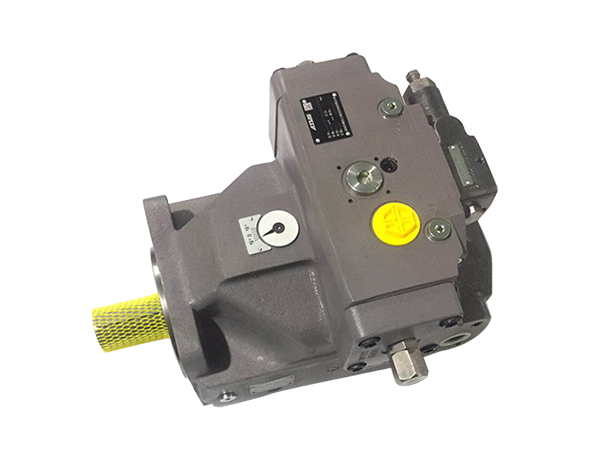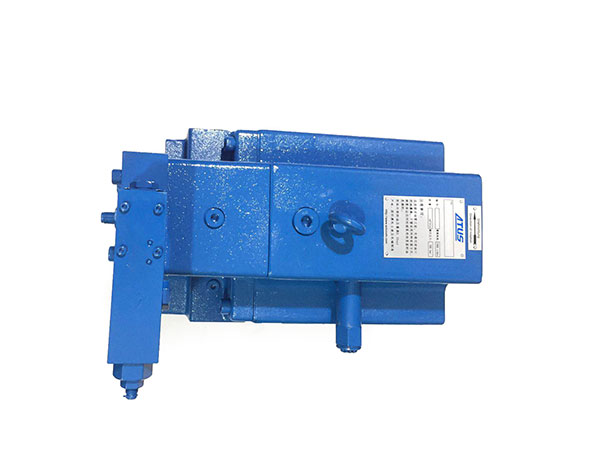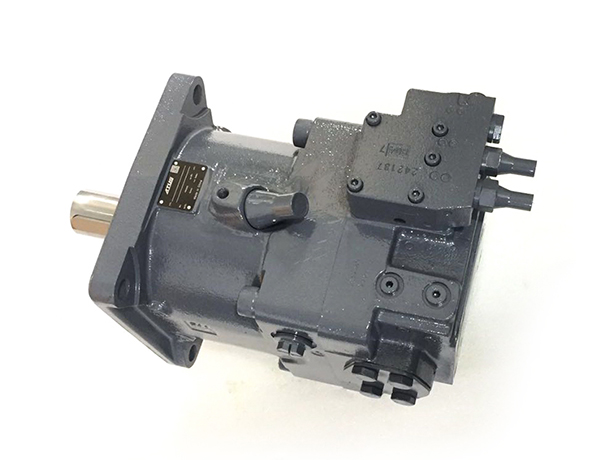
The main causes of failure of hydraulic oil pumps are the following six aspects: liquid contamination, liquid leakage, changes in liquid chemical properties, changes in liquid physical properties, liquid cavitation, and overheating of liquid systems. In order to prevent the occurrence and development of hydraulic oil pump failure, it is necessary to monitor and correct the root cause parameters of the above failures to keep them within the allowable range. That is to say, the stability of the failure root cause must be maintained.
1. Hydraulic oil pollution
Hydraulic oil pollution is the main source of failure of hydraulic oil pumps. According to statistics, about 75% of hydraulic oil pump failures are caused by hydraulic oil pollution. The forms of component failure caused by hydraulic oil pollution mainly include pollution wear, pollution jamming and pollution blockage. The main factors affecting the wear and performance degradation of hydraulic components are hydraulic oil contamination, component contamination sensitivity, and operating conditions.
In order to prevent failure and failure caused by hydraulic oil, it is necessary to maintain the pollution degree of the hydraulic oil in the system within the range of pollution tolerance of key components through pollution control measures, that is, to stabilize the degree of contamination of the hydraulic oil.
2, leakage
Leakage is a common problem with current hydraulic oil pumps. External leakage occurs at the outer joint surface of the hydraulic component, the pipe joint, and the linear, rotary motion interface. The internal leakage occurs in the internal clearance of the hydraulic component, such as the distribution of the hydraulic pump, the sealing clearance of the hydraulic cylinder and the piston. Excessive internal leakage causes the pump volumetric efficiency to decrease, the hydraulic cylinder to crawl, the hydraulic motor speed loss, etc., which is a great hazard to the hydraulic oil pump.
Leakage is a signal of failure and failure of the hydraulic pump, and countermeasures must be taken in a timely manner. The main factors affecting the leakage of the hydraulic oil pump are the wear or damage of the seal, the looseness of the pipe, and the poor processing or installation of the hose. Reasonable sealing structure, excellent sealing material and necessary sealing force are important factors for hydraulic oil leakage stability. Control the hydraulic oil pump temperature rise, control oil pollution, control excessive vibration, you can control the internal and external leakage of the hydraulic pump.
3. Changes in chemical properties of hydraulic oil
The chemical properties of hydraulic fluids are related to the chemical composition of the hydraulic fluid and the chemical composition of the additives. In order to improve the performance of the hydraulic oil to meet the working requirements of the hydraulic oil pump, various chemical additives such as anti-oxidation, rust removal, viscosity increasing, anti-wear, low-condensation and the like are added to the working liquid. Therefore, maintaining chemical stability is an important condition for ensuring reliable operation of the hydraulic pump and component life.
Due to the high pressure and adverse environment of the hydraulic fluid in the system, the chemical composition and performance of the hydraulic oil will gradually change during the work and storage process. This is mainly due to the oxidation of the hydraulic oil and the consumption of the additive. As a result of this oxidation, hydraulic oil is deteriorated, and soluble and insoluble compounds such as resins, acids, and precipitates are generated, which further increases the contamination of the hydraulic oil.
The rate of deterioration of hydraulic oil is related to factors such as operating temperature, pressure, type and content of contaminants. When water and metal particles acting as catalysts are present at the same time, the oxidation rate of the oil increases sharply. Iron increases the oxidation rate of the oil by a factor of 10, and copper increases the oxidation rate by a factor of 30. Therefore, effective control of oil pollution, the use of additives to stabilize the oil, helps to maintain the chemical stability of the oil.

Generally, when the influence and interference factors disappear, the physical properties of the hydraulic oil can be restored to the original value. At this time, the physical properties of the hydraulic oil can be considered to be stable. However, when the physical properties of the hydraulic fluid change beyond the allowable range, it will cause damage to the system and components. Therefore, the maintenance personnel of the hydraulic oil pump must pay attention to the changes in the physical properties of the hydraulic oil and maintain the stability of the physical properties of the hydraulic oil.
5, liquid cavitation
The cavitation of the hydraulic oil pump will cause vibration and noise, accelerate the deterioration of the oil, and deteriorate the performance of the hydraulic oil pump.
6, hydraulic oil pump overheating
The working temperature of the hydraulic oil pump should have a certain range. The excessively high temperature makes the viscosity of the hydraulic oil low, the lubricating performance deteriorates, the leakage increases, and the hydraulic oil is oxidized and decomposed.
